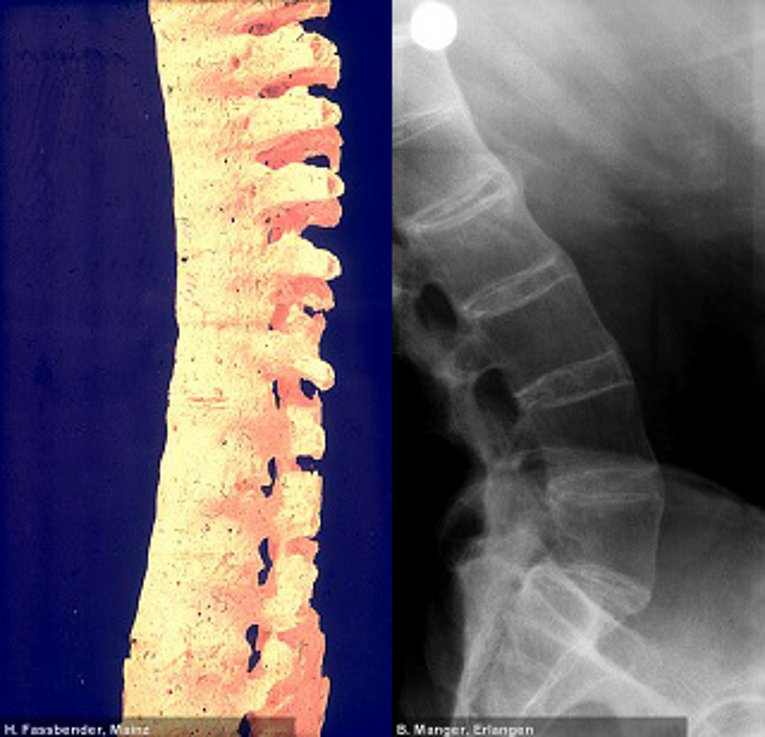What is ankylosing spondylitis?
Ankylosing spondylitis is an inflammatory disease that affects the sacroiliac joints, the spine and the chest. It often appears for the first time in younger people between the ages of 20 and 40 and affects more men than women. What is striking is a strong familial clustering, which is linked to genetic characteristics such as HLA-B27.
How does the disease manifest itself?
Inflammatory back pain is typical of Bekhterev's disease. It occurs gradually over a period of months, even before the age of 50, and is particularly severe at night, when getting up and at rest. Anti-inflammatory drugs like ibuprofen or diclofenac help to relieve the pain. As the disease progresses, the vertebral bodies may ossify (ankylosis), leading to an altered posture and reduced mobility.
How is it recognised?
In addition to the signs of the disease, the detection of HLA-B27 and inflammation values in the blood is important. Imaging procedures, such as magnetic resonance imaging, are helpful in diagnosing the disease in order to detect changes in the joints.
What can be done to treat Bekhterev's disease?
A combination of pain and anti-inflammatory treatment and exercise therapy to maintain spinal mobility makes life easier for patients. If non-steroidal anti-inflammatory drugs (e.g. ibuprofen, diclofenac) can no longer control the symptoms, special anti-inflammatory drugs (biologics) are used that inhibit cytokines such as either tumour necrosis factor or interleukin-17.
Tips for everyday life
A balanced, low-meat diet, exercise (e.g. Nordic walking, swimming, physiotherapy), avoidance of nicotine
Consultation hour for Rheumatology and Immunology
Special consultation hour
Mehul Lapsiwala
Panagiotis Garantziotis
Zeiten
Monday - Thursday
07.30--10.00 h and 14.00--15.30 h
Friday
07.30--11.00 h
Internistisches Zentrum
Erdgeschoss, Bauteil C
Ulmenweg 18
91054 Erlangen
Appointments only upon consultation
Use the patient app of UKER to schedule your appointment.
Alternative contact options:
Phone: +49 9131 85-34742
Fax: +49 9131 85-36448
or by e-mail to m3hsa(at)uk-erlangen.de
Hinweis
Due to the high volume of patients, initial appointments can only take place after telephone consultation between the referring colleagues and the clinic's duty physician.
Downloads
Required documents
- Certificate of Insurance (health insurance card)
- Allocation
- Copies of the preliminary findings
- X-ray images
- Reports from previous hospitalizations
- in case of initial appointment, completed questionnaire (see documents)




